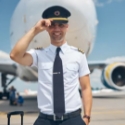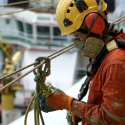What Is Next After 26? Career Paths for Experienced Air Hostesses
For many, becoming an air hostess or flight attendant is a dream job. The opportunity to travel the world, meet new people, and work in a dynamic, fast-paced environment is incredibly appealing.

What is the maximum age for an air hostess?
However, like most jobs in the aviation industry, being a flight attendant comes with age restrictions, typically limiting candidates to an age range of 18 to 26 or 27. Some airlines might extend the upper age limit slightly, up to around 30 years
Once you surpass this age, many airlines may not hire new cabin crew members, and in some cases, existing employees might face age-related restrictions to continue in this role.
What is the retirement age of air hostess in India?
The retirement age of air hostesses has often been a topic of debate, with some advocating for it to be set at 45 instead of the typical 58 years. Proponents argue that the physically demanding nature of the job, combined with evolving health concerns, justifies an earlier retirement age for cabin crew.
Source: main.sci.gov.in
Does the Air Hostess Career End at 30?
But all is not lost. The aviation industry offers a vast array of career opportunities that go beyond the role of an air hostess. With years of experience in customer service, communication, and problem-solving, former air hostesses and flight attendants are well-equipped to pursue many exciting and rewarding career paths.
What Career Opportunities are Available for Air Hostess After 30?
Here's a look at some of the best career options for air hostess after 30, based on your background in aviation.
1. Transition to Airline Management
One of the most natural career shifts for a seasoned cabin crew member is moving into airline management. Having worked on the front lines of the aviation industry, you will already be familiar with its daily operations, customer service protocols, and safety standards. This hands-on experience can serve as an invaluable asset when stepping into management roles.
Roles in Airline Management:
- Customer Service Management: You could oversee the entire customer service department, ensuring that passengers receive a high level of care and attention. With your direct experience dealing with passengers, this could be an ideal transition.
- Operations Management: In this role, you'd manage the logistics of flight operations, ensuring that everything runs smoothly from pre-flight preparations to in-flight services and post-flight procedures.
- Cabin Crew Training and Development: If you have a passion for teaching, you could take up a role in training new cabin crew members, sharing your valuable knowledge of in-flight safety, customer interaction, and service excellence.
Many airlines offer internal management training programs that help flight attendants transition to leadership roles within the company. These programs provide the necessary skills in finance, operations, marketing, and human resources to succeed at higher levels.
2. Airport Management and Operations
If working in an airline’s headquarters or on aircraft isn’t appealing, airport management is another excellent option. Airports are complex operations with many moving parts, from security to passenger services, flight coordination, and ground operations. Your understanding of the aviation ecosystem will make you a strong candidate for roles in airport management.
Roles in Airport Management:
- Airport Operations Manager: Oversee the daily functioning of the airport, including managing staff, ensuring smooth check-in procedures, handling flight schedules, and maintaining security protocols.
- Ground Services: You could take on roles such as overseeing baggage handling, ground crew coordination, and ensuring that the ground operations team meets the airline's safety and efficiency standards.
- Customer Service at the Airport: With your communication and problem-solving skills, you could help manage VIP lounges, concierge services, and direct customer assistance. This can involve overseeing smooth check-in processes, resolving complaints, and ensuring a positive experience for passengers.
Working in airport management will allow you to stay within the aviation industry while developing your leadership and administrative skills. It also often offers a better work-life balance compared to the irregular schedules of flight attendants.
3. Aviation Training and Instruction
If you have a passion for teaching and mentoring others, a career in aviation training could be an excellent fit. Your real-world experience as a flight attendant would make you an ideal candidate to train the next generation of cabin crew members.
Aviation Training Roles:
- Cabin Crew Trainer: In this position, you would train new air hostesses on flight safety, emergency procedures, customer service, and other essential aspects of their role. You’d also teach them the specific standards and protocols followed by airlines.
- Safety Instructor: Aviation safety is paramount, and your experience in managing in-flight emergencies and handling passenger safety could make you an ideal candidate for teaching safety courses.
- Customer Service Trainer: Airlines value employees who understand the importance of high-quality customer service. You could teach new recruits the skills necessary to manage passengers and resolve conflicts effectively.
Aviation training institutes often seek instructors with industry experience, and your background would be highly regarded. In addition, many international and domestic flight training schools are expanding rapidly, providing a wealth of opportunities for experienced professionals.
4. Corporate Training and Development
In addition to teaching aspiring cabin crew members, your skills in customer service and communication can be applied to corporate training roles in various sectors. Corporate trainers are in high demand, particularly in industries that prioritize customer relations, hospitality, and communication.
Corporate Training Roles:
- Soft Skills Trainer: As someone who has worked closely with people from diverse backgrounds, you could train employees in soft skills such as communication, conflict resolution, and team collaboration. These skills are critical not only in aviation but also in other customer-facing industries.
- Leadership Development: Your experience as part of a team in a high-pressure environment can also lend itself to leadership training. Companies often seek trainers to help their employees develop leadership and management skills.
These roles are often more stable than those in aviation and may offer better working hours, making them an attractive option after a career as a flight attendant.
5. Travel and Tourism Industry
Another natural career path for someone who has spent their career traveling is the travel and tourism industry. Your extensive knowledge of destinations, airport processes, and customer preferences can translate well into roles such as:
Roles in Travel and Tourism:
- Travel Consultant: As a travel consultant, you can work with travel agencies to help clients plan their vacations, business trips, and leisure travels. Your firsthand travel experience would allow you to offer personalized recommendations.
- Tourism Marketing: With the rise of online travel portals, you could work in marketing or public relations for travel agencies or tourism boards. Promoting destinations, airlines, and packages could be a great way to leverage your aviation knowledge.
- Tour Leader: You could organize and lead tours, taking groups of people to various destinations. This job combines your passion for travel with your ability to work with people and manage groups.
The travel industry is vast, and your existing skills in customer service and travel logistics can help you excel in a wide range of roles.
6. Aviation Sales and Marketing
As the aviation industry becomes more competitive, airlines and related businesses are increasingly looking for professionals to help them promote their services. Sales and marketing roles within the aviation industry are perfect for individuals with in-depth knowledge of aviation products and customer preferences.
Aviation Sales and Marketing Roles:
- Sales Executive: Airlines often require experienced professionals to manage relationships with corporate clients, travel agencies, and other business partners. Your knowledge of the airline's operations could make you an effective representative for the company.
- Marketing Manager: You could work in the marketing department of an airline or travel company, creating campaigns to attract new customers. Your understanding of customer needs and travel behaviors could be an asset.
- Corporate Liaison: If you have developed strong interpersonal skills while working as a flight attendant, you could excel in corporate liaison roles, helping airlines form partnerships with other businesses.
Conclusion
While age limitations may put an end to a career as an air hostess, the skills gained from this job—customer service, conflict resolution, communication, and leadership—are transferable to numerous other roles in the aviation and travel industries. Whether you choose to transition into management, become a trainer, or explore a completely new field, the aviation sector offers plenty of exciting opportunities. Your experience in the sky may just be the perfect launchpad for a rewarding second career.


























































Post a Comment